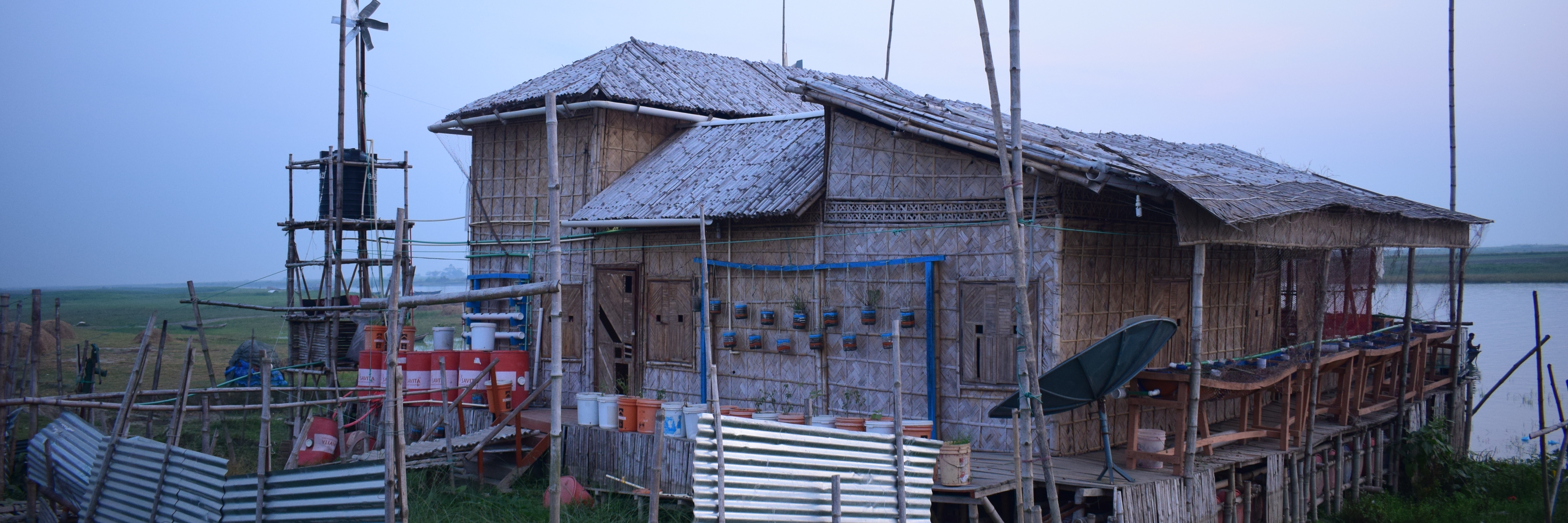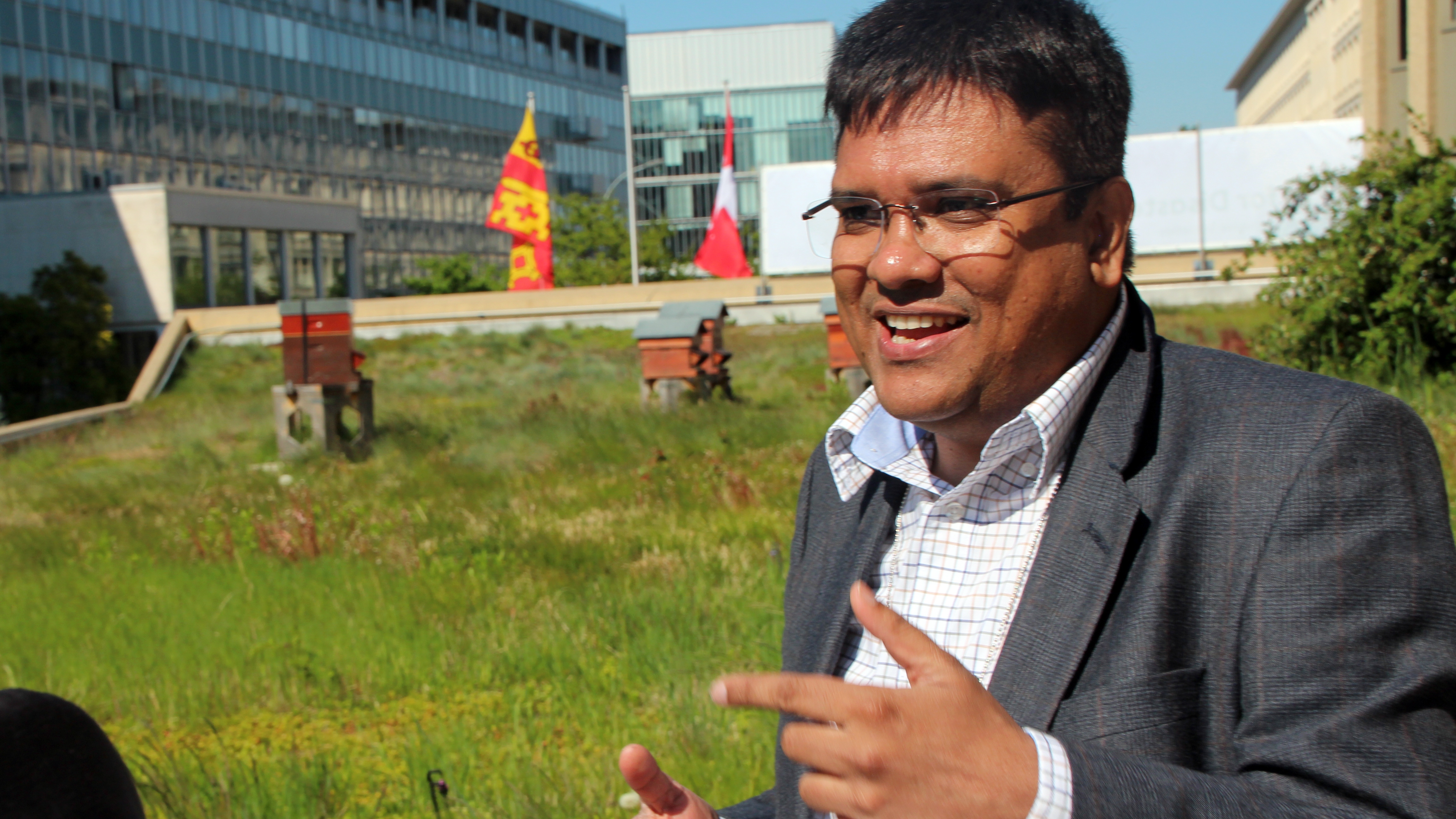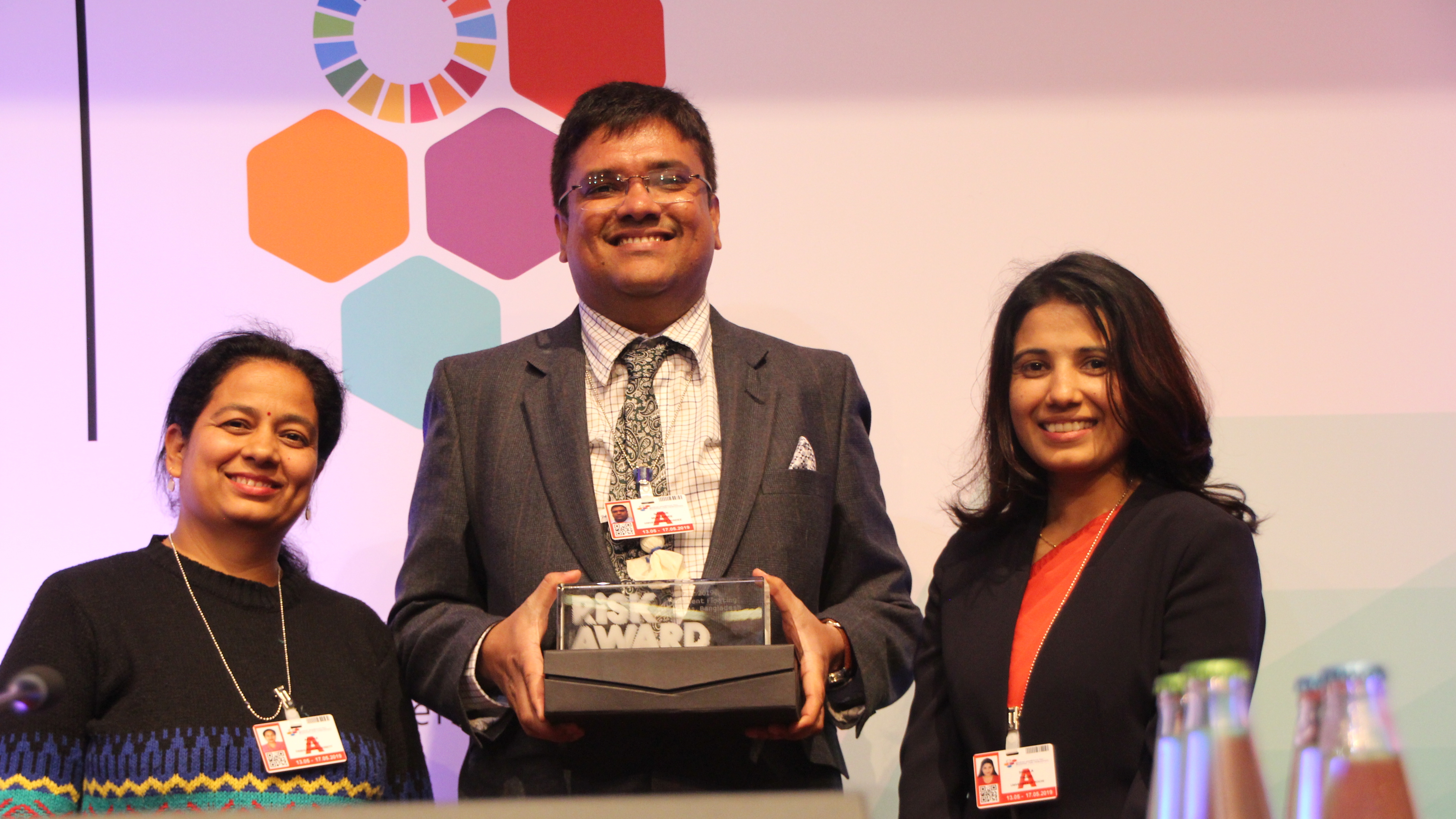
“It’s not about a boat house – it’s much more!”
properties.trackTitle
properties.trackSubtitle
Interview with Nandan Mukherjee, researcher at the University of Dundee, and co-developer of the Floating Homes Concept in Bangladesh. Nandan and project team won the 2019 RISK Award, endowed with € 100,000, for an innovative concept that has the potential to transform coastal areas and make them more resilient.

MRF: Nandan, you are one of the founding fathers of the Floating Homes project in Bangladesh and accompanied the pilot phase. How come?
Nandan: My home country Bangladesh is densely populated; many people are poor. Due to population pressure a lot of families live in floodplains. Imagine, two thirds of the country are classified as floodplains, one third is exposed to sea level rise and coastal flooding. Some 20% of the country are flooded every year on average. When I spoke with a woman who had lost her child in floods, I felt that something needs to be done immediately.
MRF: As much as we understand, you don’t only create boat houses. What is the real story behind the Floating Homes concept?
Nandan: The concept is not only about a house which can swim, Floating Homes is about sustainable living and creating a home for people at risk. Water, energy, food, and livelihoods are important elements of daily life and addressed by the Sustainable Development Goals. The Floating Homes serve all these issues and goals. The homes are not only strong buildings that can withstand Cat 3 cyclones, strong earthquakes, and floods, but they also provide a chance for securing livelihoods.
MRF: How?
Nandan: Important elements of a Floating Home include aquaponics, recycling mechanisms, food systems, clean drinking water and much more. Houses are equipped with tanks with 17,000 litres of drinking water harvested from rain. The energy is renewable, created by photovoltaic panels and wind energy. The concept fosters vertical gardening along walls. A Floating Home even includes elements of a farm. People need assets, access to markets and secured livelihoods – we are providing all this.

MRF: How does this look like? Can you explain?
Nandan: Creating livelihood opportunities is one core pillar of the homes, space for this is being provided. One home hosts up to two families. There are some 4,000 plants that can be raised by vertical gardening. Cooking is a key issue in Bangladesh. The Floating Homes include a bio gas fireplace. Chicken, up to 200 in one home, are not only serving as a source for excrements. They also lay some 150 eggs per day. This can generate an income of 900 Taka per day, double the wage of a normal day laborer. Water tanks host up to 2,000 fish, this serves protein demand and further increases income. You see, a pretty holistic solution.
MRF: Very impressive. Well, now you won the RISK Award. What are the next steps?
Nandan: Firstly, we will learn from the pilot phase and improve shortcomings. In phase one we may have focused too much on design, technique and the construction phase. For example, we changed the design 18 times in order to get to best solutions. E.g. a construction best serving recycling processes and addressing other important issues such as space for kids to play. There are many things one has to think of. We obviously underestimated power relations, both, social and political. They are of utmost importance when the construction phase is over and the homes should be run by selected families.
MRF: How will you solve this during the RISK Award phase?
Nandan: We will now try to increase ownership and reduce resentments by the local families who are not directly benefitting twofold: firstly, the next prototype could rather be seen as a learning platform for all people in the community and beyond. The locals can learn how to make use of all the ideas incorporated in this concept and thus contribute to more sustainable living. Secondly: if families show a greater interest in rebuilding their own houses as floating homes, we will assist them with every energy we have. But we will not hand over money or perfectly designed houses. My team and I will select a next project site. We will go there and live with the people to understand their risk situation but also the power relations.
13 June 2019